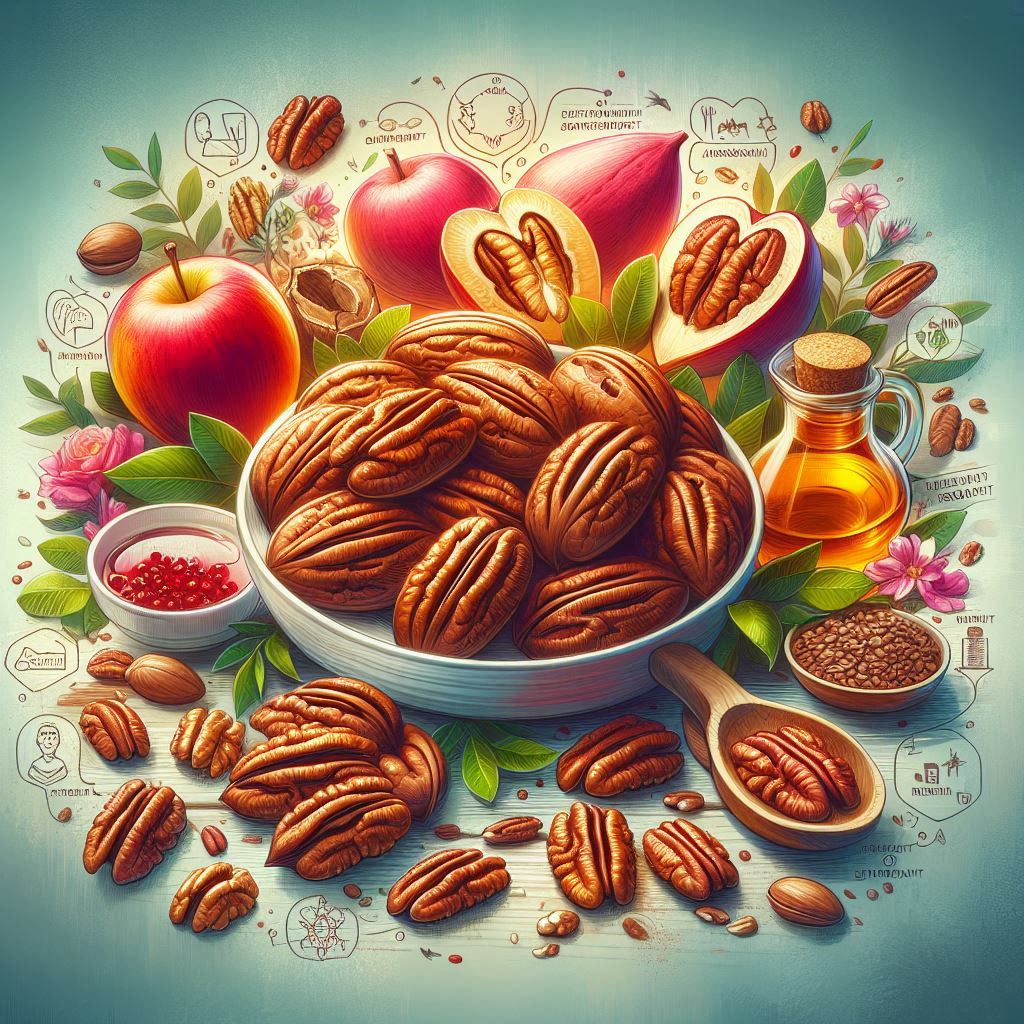Pecans, often called “America’s native nut,” boast a rich history rooted in Indigenous cultures of the Mississippi River Valley and northern Mexico. Tribes such as the Choctaw, Comanche, and Apache prized them for their versatility—eating them raw, grinding into flour, and using their shells for fuel and tools. The term “pecan” comes from the Algonquin word “pacane,” meaning “nut that needs a stone to crack.”
By the 1500s, Spanish explorers introduced pecans to Europe. Fast-forward to the 1800s, and the U.S. began commercial pecan farming—especially in Georgia, Texas, and New Mexico. Today, the U.S. produces over 80% of the world’s pecans, with growing demand in countries like China due to their increasing awareness of nut-based nutrition.
🌿 Where and How Pecans Grow: Environmental Impact & Varieties
Thriving in warm, fertile climates, pecan trees also support biodiversity by sheltering wildlife. With over 1,000 cultivars, popular varieties like Desirable, Stuart, and Pawnee offer unique differences in taste, size, and shell thickness. While pecan pie remains a classic, global dishes such as Mexican pralines and Middle Eastern baklava highlight this nut’s culinary versatility.
🧬 Nutritional Value of Pecans: A Dense Source of Healthy Fats & Antioxidants
A 1-ounce (28g) serving of raw pecans offers:
- Calories: 196
- Protein: 2.6g
- Fat: 20.4g
- Monounsaturated (MUFA): 11.5g
- Polyunsaturated (PUFA): 6.1g
- Carbs: 3.9g
- Fiber: 2.7g
- Sugar: 1.1g
Key Micronutrients:
- Vitamin E, B1 (Thiamine), Magnesium, Zinc, Manganese, and Phosphorus
🧪 Bioactive Compounds and Phytochemicals in Pecans
- Ellagic Acid: Fights cancer and oxidative stress
- Beta-Sitosterol: Naturally lowers cholesterol
- Flavonoids: Supports vascular health
🔟 Top 10 Science-Backed Health Benefits of Pecans
❤️ 1. Promote Heart Health Naturally
Pecans support cardiovascular health through:
- Lowering LDL cholesterol
- Reducing blood pressure
- Enhancing endothelial function
Research Insight: A 2018 clinical study found that pecans improved heart markers in obese individuals by lowering cholesterol by 12% and blood pressure by 9%.
⚖️ 2. Aid in Weight Management & Appetite Control
Pecans promote satiety and reduce cravings:
- Improve leptin sensitivity
- Boost metabolism due to protein and fiber
- Support gut health to reduce hunger
Fun Fact: In a 2020 study, pecan eaters reported 25% fewer sugar cravings.
🛡️ 3. Packed with Antioxidants to Prevent Disease
Ranked highest in antioxidant capacity among tree nuts:
- Lower cancer risk (especially breast and colon)
- Slow aging and protect skin
- Fight chronic diseases via ellagic acid and vitamin E
🧠 4. Boost Brain Function & Cognitive Health
Pecans contain brain-nourishing nutrients like:
- Omega-3 ALA → DHA (neural development)
- Choline → Neurotransmitter support
- Zinc → Enhances learning and memory
Study Note: Older adults who regularly ate nuts had a 40% lower risk of cognitive decline.
🦴 5. Strengthen Bones with Key Minerals
Minerals in pecans contribute to bone density:
- Magnesium → Activates vitamin D
- Phosphorus → Essential for bone structure
- Manganese → Collagen production
🦠 6. Improve Gut Health & Digestion
Pecans feed beneficial gut bacteria:
- Boost SCFA production (like butyrate)
- Lower risk of colorectal cancer
- Improve immune function and reduce inflammation
✨ 7. Nourish Skin & Hair from Within
- Vitamin E → Repairs skin and protects against UV
- Zinc → Clears acne
- Copper → Enhances hair pigmentation
DIY Tip: Make a pecan-honey-yogurt face mask for glowing skin.
🔁 8. Regulate Blood Sugar & Support Diabetes Management
Low GI and rich in magnesium, pecans:
- Enhance insulin sensitivity
- Slow carb digestion
- Support pancreatic function
Study Highlight: People with type 2 diabetes saw a 12% drop in fasting glucose after eating pecans for 12 weeks.
🧬 9. Boost Immunity Naturally
These are rich in immune-boosting nutrients:
- Zinc → Strengthens white blood cells
- Vitamin E & Selenium → Enhance immune response
Flu Season Tip: Add chopped pecans to soups and yogurt for extra immune support.
🔥 10. Fight Inflammation at the Root
Chronic inflammation contributes to many diseases. Pecans help reduce inflammation through:
- Ellagic acid and omega-3s
- Fiber that produces anti-inflammatory SCFAs
- Reduction of C-reactive protein (CRP) by 18% in studies
⚠️ Possible Side Effects and Precautions When Eating Pecans
- Allergies: Avoid if allergic to tree nuts
- Oxalates: May cause kidney stones in some individuals
- Calories: Stick to 1 ounce daily to prevent weight gain
- Sustainability: Look for regenerative farming brands
🥗 Delicious Ways to Incorporate Pecans Into Your Diet
🌍 Global Pecan Dish Inspirations
- Southern USA: Pecan-crusted fish
- Mexico: Pumpkin with pecans in cinnamon syrup
- India: Pecan barfi with cardamom
- France: Bourbon pecan tart
🍄 Recipe: Savory Pecan-Stuffed Mushrooms
Ingredients include mushrooms, pecans, cream cheese, breadcrumbs, and herbs. Sauté mushroom stems, mix with cream cheese and seasonings, stuff the caps, and bake until golden. A perfect appetizer with a nutty, rich flavor!




